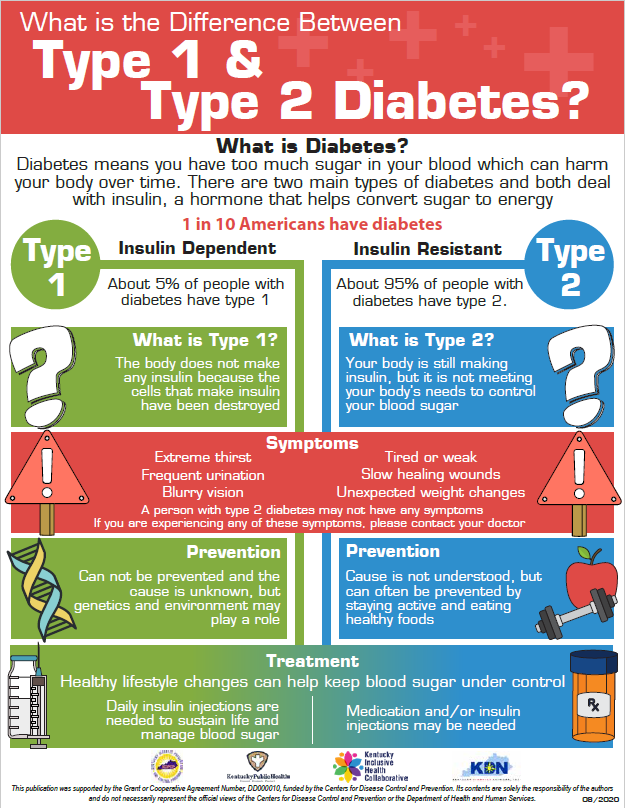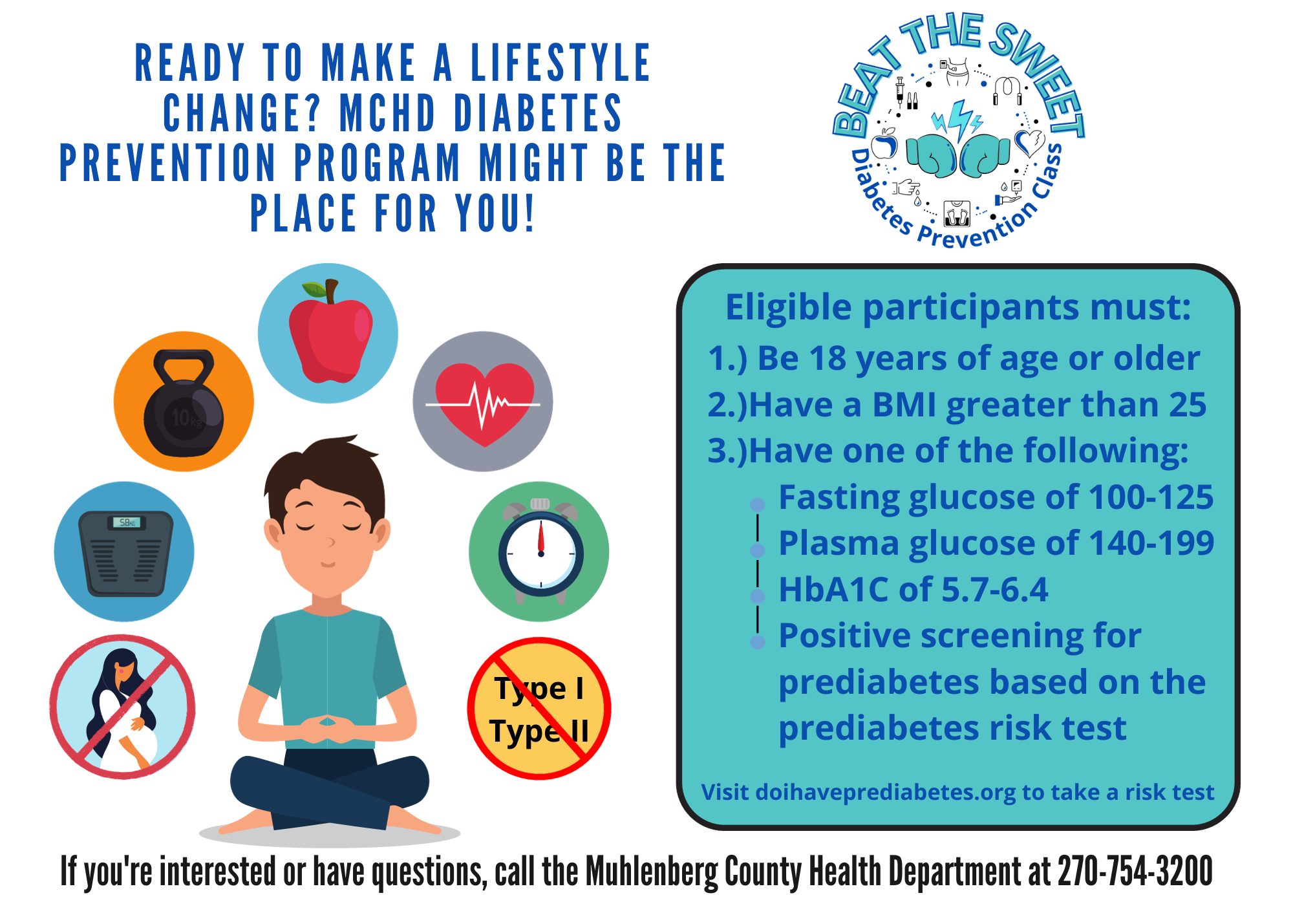Muhlenberg County Health Department
Diabetes Education & Prevention
The Kentucky Diabetes Prevention and Control Program (KDPCP) is a population-focused public health initiative consisting of a network of state, regional, and local health professionals, as well as numerous public and private partners, working together to reduce the new cases of type 2 diabetes and reduce the sickness, disability, and death associated with diabetes and its complications.

You are at increased risk for diabetes if:
- You are overweight.
- You are physically inactive.
- A parent, brother or sister has diabetes.
- You are Hispanic/Latino, Native American, Asian American, African American or Pacific Islander.
- You had a baby weighing more than 9 pounds or had gestational diabetes.
- You have high blood pressure.
- You have low HDL (good cholesterol).
- You have high triglycerides.
Warning signs may include:
- Frequent trips to the bathroom
- Unquenchable thirst
- Losing weight without trying
- Weakness or fatigue
- Tingling or numbness in your hands, legs or feet
- Blurred vision
- Itchy or dry skin
- Cuts and bruises that take a long time to heal
Diabetes is the leading cause of blindness, kidney failure and amputations. Diabetes is the fifth leading cause of death by disease. Complications such as heart attack, stroke, blindness, kidney failure and amputation can be greatly reduced with proper medical care, good nutrition, modest physical activity and self-management education. MCHD offers classes designed to help you manage Diabetes. These may be individual or group sessions. Call to find the right fit for you.

Prevention
- Lose weight and keep it off. You may be able to prevent or delay diabetes by losing 5 to 7 percent of your starting weight. Consult with your health care provider.
- Move more. Get at least 30 minutes of physical activity 5 days a week. If you have not been active, talk with your health care professional about which activities are best. Start slowly to build up to your goal.
- Eat healthy foods most of the time. Eat smaller portions to reduce the amount of calories you eat each day will help you lose weight. Choosing foods with less fat is another way to reduce calories. Drink water instead of sweetened beverages.
- Ask your health care professional about what other changes you can make to prevent or delay type 2 diabetes. Most often, your best chance for preventing type 2 diabetes is to make lifestyle changes that work for you long term.
MCHD now offers the National Diabetes Prevention Program called Prevent T2. This year-long program provides coaching to help you succeed. We provide tips to help you make lifestyle changes that are proven to prevent or delay Type 2 diabetes. Call us for more information on this exciting program.
Diabetes Resources
ADA – American Diabetes Association CDC Diabetes
JDRF – Juvenile Diabetes Research Foundation
National Institute of Diabetes and Digestive and Kidney Diseases
